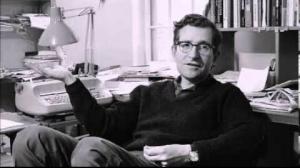Vittorio Guidano: biography of this Italian psychiatrist
Throughout history, many authors have investigated the human psyche, and many schools of thought have emerged.
Currently, one of the most accepted and valued is the cognitive-behavioral current. However, and especially in its origins, this current has been criticized for focusing excessively on a rational point of view and little on the emotional. Over time, the value given to emotion has increased, especially thanks to schools such as constructivism or theories such as John Bowlby's attachment.
Another great school of thought, which has integrated elements of the aforementioned to form a cognitive-constructivist model, is the post-rationalist school founded by Vittorio Guidano. Knowing the life of its main founder may be of interest in order to understand what this model proposes, with which throughout this article we are going to carry out a short biography of Vittorio Guidano, with the main stages of his life.
- Related article: "History of Psychology: authors and main theories"
A brief biography of Vittorio Guidano
Vittorio Filippo Guidano was born on August 4, 1944 in Rome, Italy. From a pharmacist father, he spent a large part of his adolescence in Caracas, Venezuela, to later return to the city where he was born to continue his academic training. There he would study the Baccalaureate at the Liceo Giambattista Vico, studies that he would finish in 1964 with a degree in arts.
Later he enrolled and studied Medicine at the University of Rome "La Sapienza". He completed a doctorate in Medicine and Surgery, a doctorate that he would finish in 1969. The protests and social movements of 1968, however, would make him begin to be interested in more social and psychological fields, something that ended up leading him to become interested in the human mind and psyche.
The beginnings of his relationship with psychiatry
In 1970 he received a scholarship from the Italian administration to enter the Institute of Psychiatry at the same University "La Sapienzia", directed by Professor Reda. At this stage, Guidano would begin to carry out his first investigations within the field of psychiatry., focusing on trying to understand the human psyche.
Later, in 1972, he would carry out a specialization in Neuropsychiatry at the University of Pisa, and that same year he was one of the founders of the Società Italiana di Terapia Comportamentale e Cognitiva (Italian Society for Cognitive and Behavioral Therapy) and later named its president (a position he would hold until 1978). While practicing as such, he continued to work on research at the University of Rome, where he was hired in 1974.
Specifically, his first works in this area were methodological and psychometric research focused on personality factors and the effects of cognitive-behavioral therapy of the time, at that time recently introduced in Italy.
These investigations, which made him see some limitations as well as different theories that partly diverged from the approach of said model (such as Bowlby's attachment) led them to elaborate their own way of observing the human psyche, initiating the elaboration of a model of identity development based on the cognitivist, experimental and relational.
The beginnings of post-rationalism
In 1976 he would be appointed Assistant Professor of Psychotherapy and Psychopathology at the University of Rome, and would give classes on this subject until 1985. But his professional activity did not end there: in 1978 he founded the Cognitive Therapy Center in Rome, an institution that, in addition to therapy, offered education and training to therapists.
This center grew rapidly and would achieve great reputation. In 1981 he was hired as a researcher at the University of Rome, a relationship that would last until 1986, and conducted numerous lectures at universities around the world.
During those years he began to work with Giovanni Liotti, together with whom he would develop one of his most relevant works and who would end up becoming one of the key moments in the founding of post-rationalism: Cognitive Processes and Emotional Disorders (1983).
From this work he begins to integrate elements of constructivism, Bowlby's attachment theory and Piaget's theories about development within their own model, in which they begin to transcend and endow each increasing importance to emotions within the formation of identity, above the cognitions.
His investigations continued, this time focusing on epistemology and aspects such as empiricism, rationalism and constructivism. He integrated a systemic vision into his theory, based on advances in general systems theory and cybernetics.
Thus, he observed that we actively construct our own personal experience from what we live, something over the course of time. development leads us to generate a unique identity, as well as being part of a living system: he developed the concept of Organization of Personal Meaning and established different ways of organization, which can lead both to normotypicity and to psychopathology.
The public Complexity of the Self in 1987, and another work, The Self in Process, in 1991. in them already began to talk about the concept of post-rationalism as a way to differentiate the model from him (more focused on subjectivity and emotion in identity development than on cognition and reasoning in cognitivist theory).
- You may be interested in: "Postrationalist Cognitive Psychotherapy: what is it and how does it help patients?"
death and legacy
During the late 1990s, Guidano began to delve into the study of psychoses, researching and working about this type of disorders and trying to develop specific techniques and therapies for this type of disorders based on their model. However, he would not get to complete it: Vittorio Guidano died of a sudden heart attack in Buenos Aires on August 31, 1999., at 55 years of age, where he had traveled to attend a congress.
The death of this important psychiatric professional left his work unfinished, but despite this his contributions throughout his life have left a wide legacy: post-rationalism is a school of psychotherapy that serves as an inspiration for many authors within the cognitive current constructivist.

